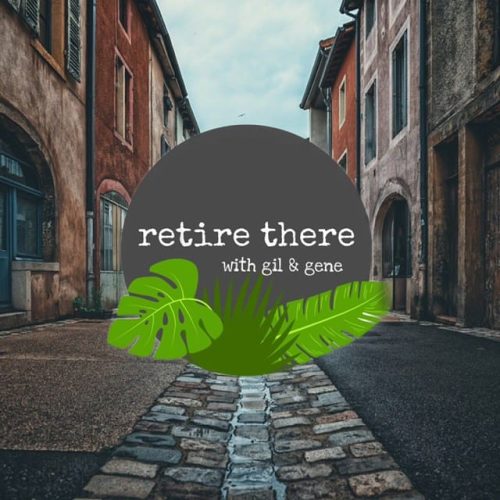Do You Eat For Your Age? The SeniorScape™
Have you noticed that your body reacts differently to foods that you ate in years prior without any issues?
I noticed this.I can no longer eat green peppers, and certain combinations of some of my favorite foods seem to cause me to have heartburn. What the heck?
The truth is that there is a shift in our metabolism, digestion and even our Sleep patterns from about the age of forty. Hormonal changes may have something to do with it. After all, we experience sarcopenia, or loss of muscle mass, body fat increases, especially around the middle section, and carbs may be more difficult to burn because our bodies become more insulin resistant, hence the arrival of Type 2 Diabetes. There are other secondary hormonal changes. Cortisol, known as the Stress hormone, causes an increase in midriff fat and a change in digestive enzymes may cause gas, bloating and acid reflux. Changes in our hormones can also be the culprit for changing sleep patterns, but sleep patterns may also be affected by what and when we eat certain foods. For example, foods that convert to sugar, like carbohydrates, eaten late in the evening create a rise and drop in blood sugar. This may account for the middle of the night wake-up call that disrupts the much needed 8-hour sleep pattern. Since sleep is an important part of our wellness, it would make sense to examine what and when, of the foods you consume.
Let us not forget hydration, specifically water, as a crucial component to our well-being. Water helps break down food so that the body it can absorb nutrients from the food you eat. Water also makes stool softer, which helps prevent constipation. Optimally we should consume 50% of our body weight in ounces of water each day. Dehydration can result in high blood pressure, confusion, hallucinations, and Depression. Many people are unaware that experiencing the sensation of feeling thirsty is a signal that they are already dehydrated. Research tells us that even a slight reduction in fluid loss of 1-2% of bodyweight per day can lead to difficulty concentrating, focusing and remembering, low energy or feeling drained, the appearance of tiredness or sagging skin, dry mouth, occasional joint and/or muscle stiffness, difficulty recovering from work outs, slow or sluggish metabolism hunger and cravings – most people wouldn’t associate this with dehydration. The result is often reaching for something to eat that is unhealthy. Lack of sufficient water can also result in affect the way your body receives nutrients from the food you eat. When faced with lack of sufficient water, the body will
Dehydration in older adults can cause confusion and hallucinations, often mistaken for dementia, high blood pressure and can result in falls.
It also leads to urinary tract infections which can also lead to confusion and even depression. I had an experience with that myself many years ago. Unless properly diagnosed, people may also interpret this confusion as being associated with dementia. An exacerbation in confusion or behavioral changes can be misinterpreted and lead to over drugging. I’m sure we’ve all seen this happen.
There are a variety of conditions we probably associated with the Aging journey. Besides the ways our body changes to metabolize sugar that may result in Type 2 diabetes, there are other conditions we associate as we advance in age, among them are osteoporosis, arthritis, and high blood pressure and hyperlipidemia, the condition in which there is an excess of lipids (or fats) in your blood, commonly known as cholesterol and triglycerides. One type of hyperlipidemia, hypercholesterolemia, or too much non-HDL cholesterol and LDL (bad) cholesterol in your blood. This condition increases fatty deposits in arteries and the risk of blockages.
That may also sound like a prescription for doomsday, but it doesn’t have to be.
How you say? What do you have to do to avoid what seems to be a downward slide in your health and wellbeing?
While family history may play a part in the conditions we develop, it’s no secret that smoking, excess weight and lack of Exercise are the culprits that contribute to these conditions.
It may sound redundant, but you have to not only be conscious of your choices but also make your choices consciously or intentionally. In doing so you will be able to take ownership of your wellbeing. That is far easier sounding than it is to do. But it allows you to be the captain of your own ship, be the driver in the driver’s seat of your body as your vehicle, to take charge of your wellbeing.
What’s the alternative? Essentially surrendering to the inevitabilities of what comes your way. It may be looking at yourself in the mirror with disgust and disbelief, dragging yourself around feeling sluggish or even despondent.
Small changes can make a big difference; changes in both food intake, sleep and overall Lifestyle.
How we look, how we feel and our overall wellness depends on us. It is after all a personal choice. No one can do it for us.
So the question is, are you ready to take personal responsibility for your health and well-being?
From the Wellness CEO by Phyllis Ayman
Your Health Is Your BUSINESS!!!
You are the CEO of your well-being
If you don’t mind, it doesn’t matter
but,
If you mind, make it MATTER!!!
The Place to begin is Within, the Time to Begin Is NOW!!!!!
Make the Rest of Your Life, the Best of Your Life!!!!
Feel Fab…..Look Fab…..Be FAB – U – Lous YOU!!!!!!
IMpathy®
AGE MAGNIFICENTLY!!!!!
To find out more about IMpathy® at the heart of creating your personalized longevity or wellness care plan click the link: ,https://aginglifemanagement.com/optinclkepr5g
To receive The SeniorScape÷™ to your inbox please email:
Phyllis@phyllisaymanassociates.com
Follow Phyllis Ayman on the podcast: SeniorsSTRAIGHTTalk at: https://www.voiceamerica.com/show/3911/seniors-straight-talk
Originally Published on https://www.phyllisaymanassociates.com/























